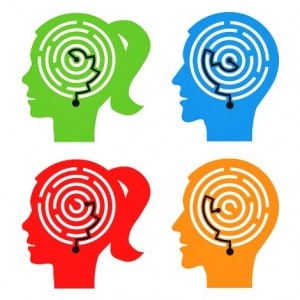
The assessment was adapted from an American test called RAADS-R (Ritvo Autism and Aspergers Diagnostic Scale-Revised). The new test, the RAADS-14 Screen, named for its 14 questions, was designed to score three sub-scales that measure known problems for people with ASD: mentalization difficulties, social anxiety, and sensory oversensitivity. The score is also based on when the symptoms developed during the person’s life. The research used the RAADS-14 Screen to assess 135 adults of normal intelligence with ASD, 508 adults with psychiatric disorders other than ASD, and 509 adults without any disorders.
The results demonstrate that the RAADS-14 Screen can clearly differentiate people on the autism spectrum from people with other psychiatric disorders. The median test score for people with ASD was 32 points out of 42 possible points. People with ADHD had a median score of 15 points, while the group with other psychiatric disorders scored 11 points and the healthy controls scored three points. When 14 points is used as a threshold for ASD, 97% of the ASD participants can be identified.
These findings could make it easier for clinicians to identify ASD in their patients and it could even be possible for individuals to screen themselves accurately.
“The problem with most psychiatric screening tools is that they have only been tested against healthy control subjects, which is completely meaningless in this context, “explained Dr. Bejerot. “In this case we have presented a scale which can help differentiated the autism spectrum group from other psychiatric disorders.”
This research is published in the journal Molecular Autism.
Previous news in autism:



 © 2025 Unyte Health US Inc.
© 2025 Unyte Health US Inc.